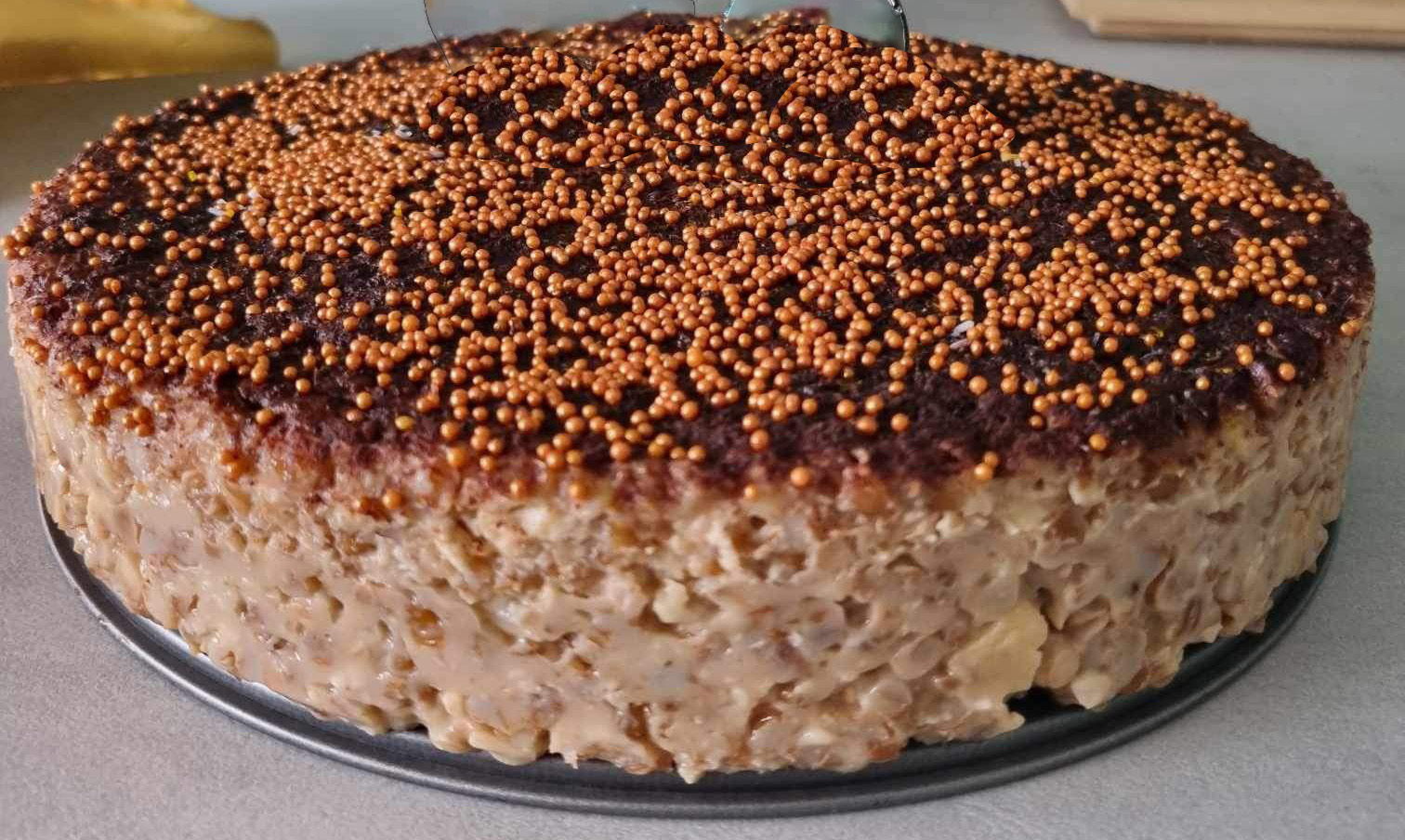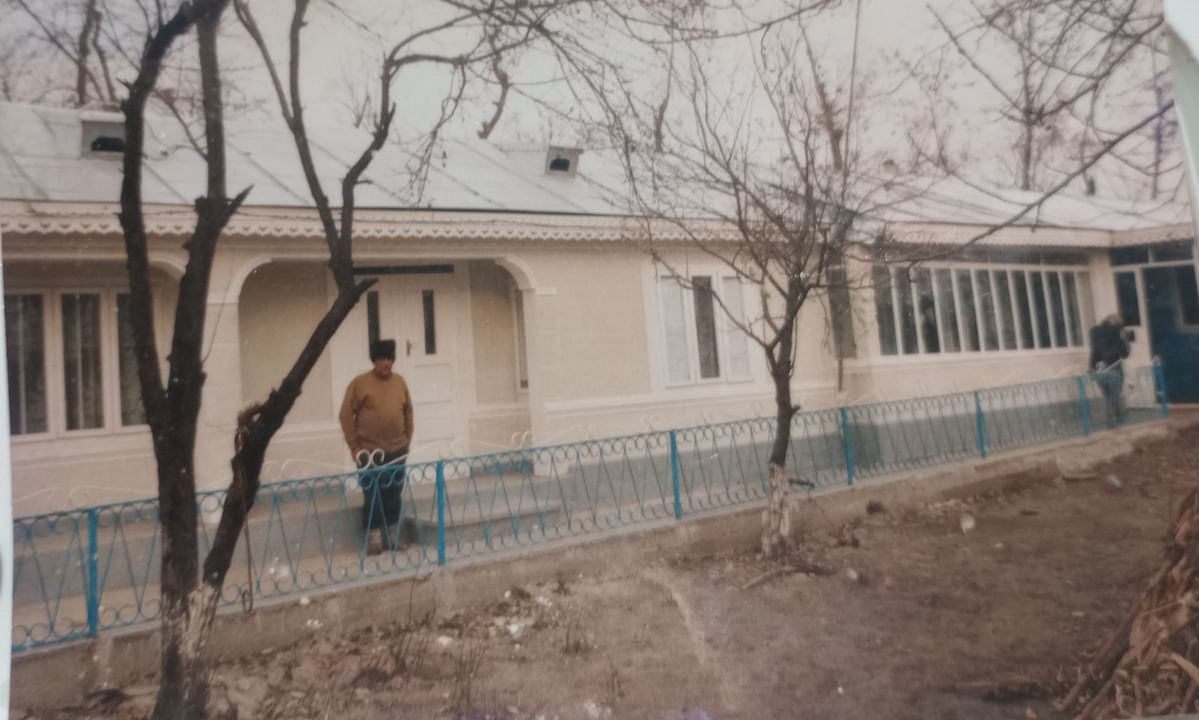Wipe your tears and tuck into the one dessert you hope never to make. Francesca Ionescu takes us to eastern Romania to explore the concept of funeral food.
I’m 11 years old and crying while the priest in his black robes drizzles red wine over my grandad’s grave.
Years later, I’m doing my first ‘server’ shift at a different relatives’ pomana – the giving away of food on the behalf of a deceased loved one. Alongside her grandson, we put sarmale [vine leaf rolls] and bread on the good plates – the ones she would have bought years ago, just to make sure they get used after her death.
We wash them in silence at the garden tap, and I can hear the crickets, the chatter of old women with scarves tied around their chins. Anytime I turn around one of them is doing the sign of the cross, before indulging in a bite that honours the soul of her departed friend. This ritual is preceded and followed by the same food: a blessed dessert which you must taste before the main and then finish after. Coliva, made from wheat, the grain which must die to come back again.
Pomana – pronounced poh-mah-nuh – is an Orthodox tradition that is hard to explain to many people outside of Romania. The family of the dead gives food away, so their loved ones’ sins are forgiven. The first one is on the day of the funeral, coming back to the house where the family prepares food. Back in the day, the food would have been a sacrificed animal, blessed by the priest; it could have fed all the neighbours. Once the meat was blessed, the animals’ skin would be given to the priest – “to give the priest your skin” is a Romanian euphemism for death. Nowadays, some city people will just hire out a restaurant. I bet they have a proper tap inside.
“It is easy to find beauty in the hours spent to assure your loved one’s soul is saved”
The word ‘coliva’ used to refer to all the food that was given away, which centuries ago would have been the equivalent of ‘picky bits’ – fruits, cheese, bread, and maybe honey. There are more ways of making coliva, out of rice or out of broken up dough, decorated with sugar. The region of Romania I grew up in, Moldova (not to be confused with the independent country Moldova), makes it out of wheat, a recipe passed on to me by my Godmother’s mum, Maria Tirca.
Maria Tirca’s Coliva:
1kg of wheat
Half a kg ground walnuts
250-300 g of sugar
The wheat has to be washed nine times in cold water, to symbolise the nine ranks of angels in the Bible. While you’re washing away, boil 1.5-2 litres of water in a pot, ready for the clean wheat. When you pop the wheat in, let it boil over a few times then turn the heat off and leave it alone until the morning, when you boil it again. A trick Maria uses is to have constant boiling water, so you can add bit by bit until it becomes the consistency of a sticky rice pudding without needing a sieve to drain out the excess. Towards the end, as the wheat gets whiter, add the sugar and leave it to cook for a bit longer until the syrup has dissolved. Let it cool and add two teaspoons of powdered sugar on top so it doesn’t get as much of a crust. After a few hours of it cooling, add the walnuts and knead well. You would be tempted to get a spoon, but if you can stand the texture, get your hands into it, feel the food in your fingers. You can add rum or vanilla essence by taste, and then let the flavour soak in for a few hours. It’s important not to cover the pot if you put it in the fridge – not for religious reasons, but to avoid condensation.

Once it’s set, flip it over and then you can decorate the coliva. As a child, this was my job at the wake – bring the elders water and wine; give the men sat outside their plastic bottles of beer; arrange raisins, cocoa, and chocolate chips to form a cross. The next day, mum would send me to the corner shop after plastic cups, and we would ladle coliva into them for the neighbours, family, the poor children, and the ones that wander the village streets aimlessly. You can hear murmurs of how much the one we’re celebrating would have loved this, in-between the crackle of the plastic and the constant chants of “may God rest their soul”.
Perhaps there was more crying. Perhaps there were people huddled into corners, wiping tears off dust covered faces from the summer-filled cemetery. The beauty of coliva is giving it away, allowing the process of preparation to take your mind off your loss and grief. It is easy to find beauty in the hours spent to assure your loved one’s soul is saved.
I have not been to church in years. I have not been to a funeral home in years. But every once in a while, I will think of my grandparents, and cover the memories of their funerals with memories of late nights, in a countryside kitchen, kneading wheat with everyone else that has loved them enough to gather here.
